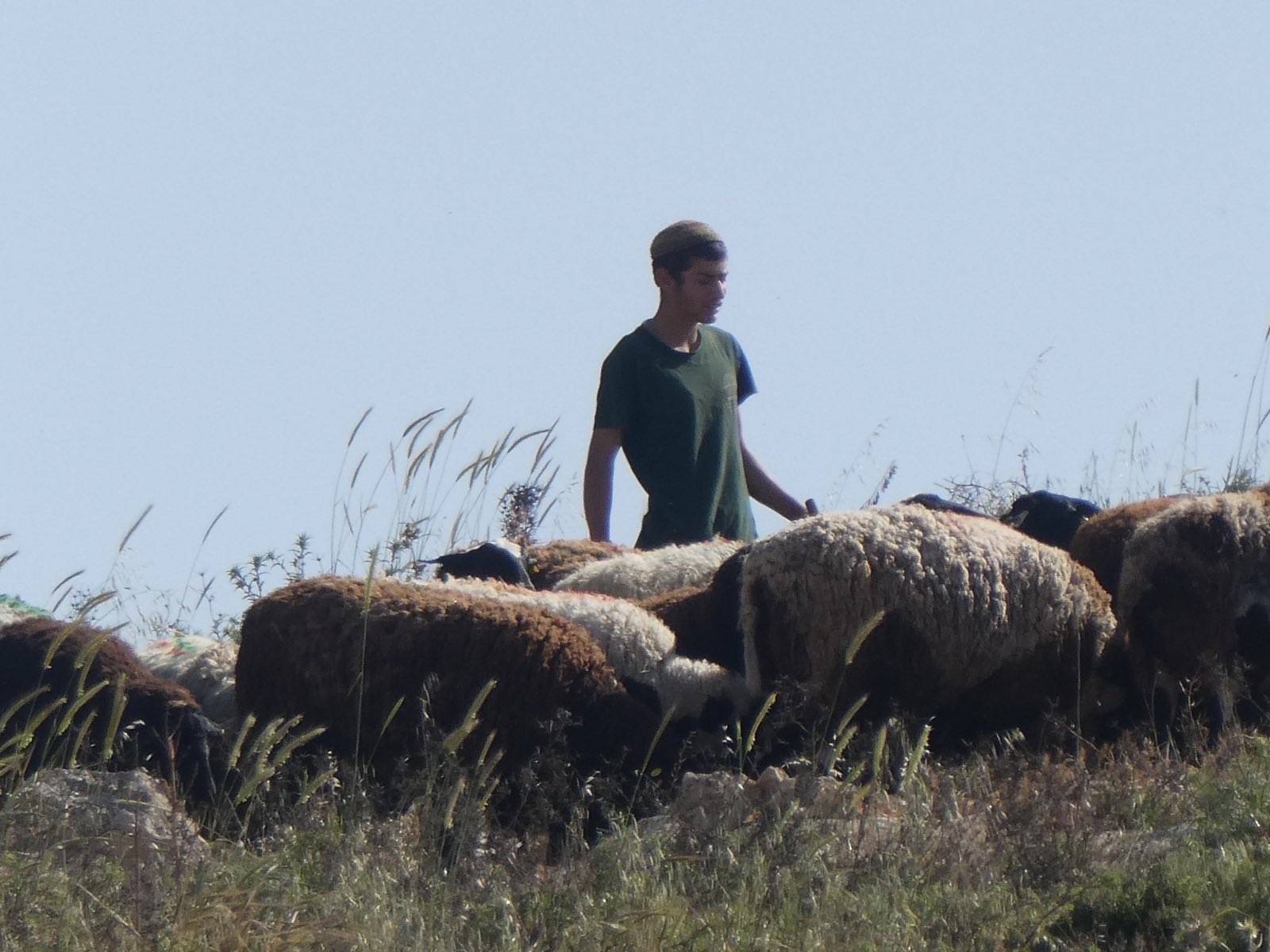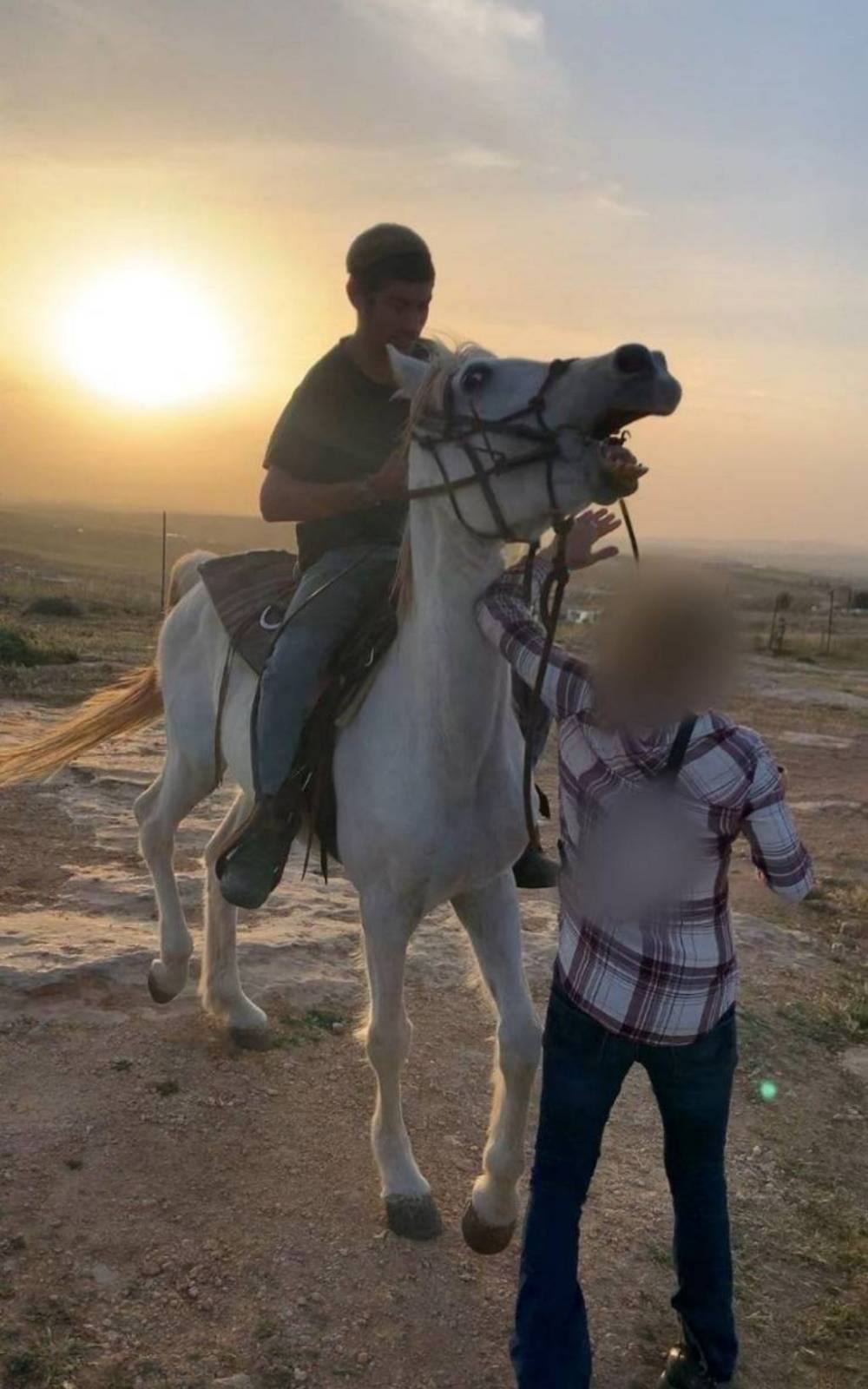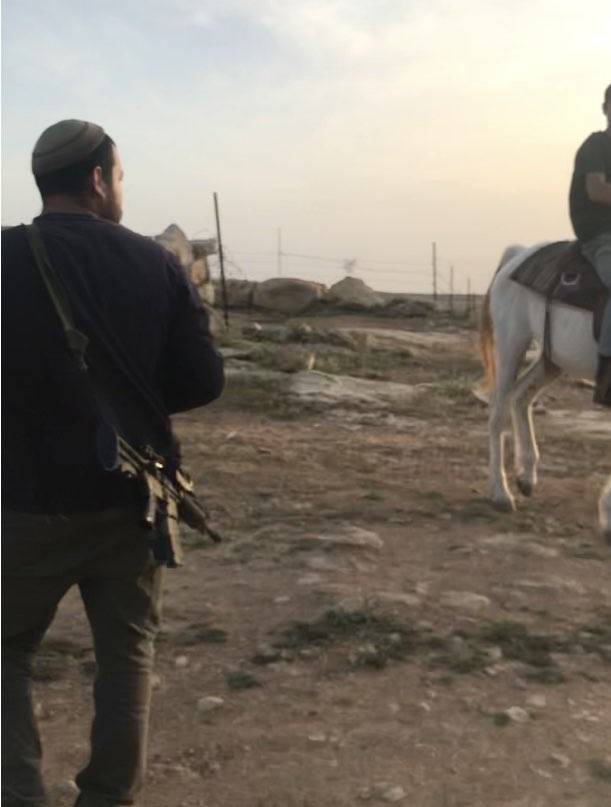Acts of harassment and terror are a daily fact of life for residents of Masafer Yatta, a collection of rural hamlets at the southern end of the West Bank. One example is Mohammed Abed’s family in Um Darit, where they are surrounded by a rapidly expanding network of illegal settlements.
After the Israeli escalation in October, they have been driven from their home by armed vigilantes and returned to find it largely destroyed. They have had sheep stolen, a vehicle burnt, a washing machine, water lines, and access panel destroyed, sewage system ruined, windows broken, their house turned upside down, and a Qur’an burned. Male members of the family have been imprisoned and beaten, and repeated incursions and acts of vandalism and terrorism are the norm.
Other acts of violence are more subtle: cars, shepherds, joggers, horseback riders, soldiers and armed settlers regularly traverse the closest roads and hills surrounding the house. As elsewhere, the closest settlements of Avigayil and newly established outposts establish themselves in high places and forbid Palestinians from setting foot in the hills and valleys leading to them (or other arbitrary boundaries). As a result, the majority of the family’s land is stolen, for the exclusive use of the State and the settlers.

For example, this week a young settler on horseback came off the road attempting to parade through Abed’s yard, garden, and flock, startling the sheep. Solidarity activists on premises asked him what he was doing there and asked that he leave. The belligerent youth aggressively and repeatedly pushed his horse, attempting to force his way past the activists. After 5+ attempts, another settler arrived with a long gun, and menaced the family and activists. Abed states he recognizes the armed settler as one of those that wrecked his home. This settler has also been involved with many other acts of harassment against Palestinians and solidarity activists. After the family spoke loudly about calling the police, two of the three settlers left and a third stayed to graze his flock of sheep on the family’s plants. In following days, this shepherd returned daily, apparently preferring to graze his animals on Abed’s land and in the valley between Palestinians villages over the closer lush valley reserved for only settler use.


These daily incursions affirm what Indigenous activists of Turtle Island (so called Americas) have said for years: colonization is a process, not an event. It appears in the everyday disrespect for Palestinians’ safety, life, land and religion, the increasing isolation of Um Darit from other Palestinians’ villages, daily military and settler harassment, the bright flood lights from the settlement shining into the village. These constant assaults and affronts aim to displace and wear down the spirit of Abed’s family and others like them.
And yet they continue, spending time as family, coloring together, raising cabbage and animals, extending amazing generosity to others, harvesting thyme and other herbs, and remaining steadfast in their commitment to resist through existence.

